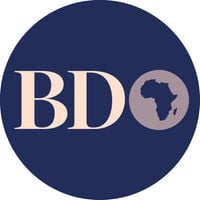
Banks grew deposits by Sh259 billion in six months to September 2020 during Covid curbs. FILE PHOTO | NMG
Summary
- Kenyan banks reported deposits worth Sh3.94 trillion from their local operations in their quarter-three results, up from Sh3.68 trillion in March, adding Sh259 billion to the lenders’ vaults over the six months.
- A slowdown in business activities and the uncertain future caused by the virus also forced many companies and rich investors to hold onto cash, analysts say, leading to a pile-up in bank accounts.
- About 1.72 million workers lost jobs in the three months to June when Kenya imposed coronavirus containment measures that led to layoffs and pay cuts.
Rich individuals and big companies saved Sh1.4 billion daily in commercial banks over the six months to September when Kenya imposed restrictions to curb the spread of the coronavirus, prompting job cuts and business closures.
Kenyan banks reported deposits worth Sh3.94 trillion from their local operations in their quarter-three results, up from Sh3.68 trillion in March, adding Sh259 billion to the lenders’ vaults over the six months.
This is an indication that wealthy individuals and firms opted to save rather than seek new areas in which to invest their fortunes.
The mounting bank deposits emerged in a period when Kenya announced its first Covid-19 cases and imposed tough restrictions, including a dusk-to-dawn curfew that led to the country’s first quarterly economic contraction since the global financial crisis 12 years ago.
The reduced economic activity was expected to hurt savings due to reduced cash flow from firms hit by subdued demand and individuals who had lost income.
Banks say they also witnessed increased deposits from digital channels after the government introduced various relief measures to encourage cashless payments on mobile phones.
The measures included doubling of the daily transaction limits to Sh300,000 on mobile phone transactions and removal of charges on small transactions. Charges on bank deposits from mobile phone wallets were also waived.
KCB Group said that its deposits jumped 31.7 per cent in the nine months to September on the back digital transactions, adding that it saw an additional two million clients adopt their mobile channels for savings.
“The rise is due to the removal of charges on transactions and also given that there is now a higher limit to transact. Transactions on our mobile channel is up six times year-on-year,” Joshua Oigara, KCB Group chief executive, told the Business Daily in an interview.
A slowdown in business activities and the uncertain future caused by the virus also forced many companies and rich investors to hold onto cash, analysts say, leading to a pile-up in bank accounts.
Low returns from a bearish stock market and a slump in real estate forced the rich opt to keep cash in banks and tap interest returns that stood at 6.41 percent in September.
While companies see the money in banks as a buffer against hard times, it has long riled investors, who say executives should invest it for growth or return it to shareholders.
Industries and other businesses have since cut down on their activities in response to the infectious disease, leading to job cuts and unpaid leave for retained staff as profitable firms move into losses.
About 1.72 million workers lost jobs in the three months to June when Kenya imposed coronavirus containment measures that led to layoffs and pay cuts.
Demand at home and in export markets slumped as consumers stayed indoors to avoid catching the virus and because of the containment measures, forcing firms and the rich to freeze investments plans.
“There is no paradox, when people got the stimulus package in terms of tax cuts on personal and corporate incomes the logical thing was to save the money,” said Prof XN Iraki, an economist at the University of Nairobi.
“When people feel insecure they keep money. If you had a capital project you hold it and keep the money. That is why sometimes stimulus packages do not work.”
Kenya’s economy shrank by 5.7 percent in the second three months of 2020, its first quarterly contraction since the global financial crisis 12 years ago, as the Covid-19 pandemic shut businesses and kept people at home.
The statistics office said that the economic impact of the coronavirus crisis had been concentrated in the April-June quarter, with restrictions on travel hitting the key tourism sector especially hard.
The 5.7 percent second-quarter contraction compared with a 5.3 percent expansion in the same period a year before.
Kenya’s last quarterly contraction, of 1.6 percent, was recorded in the third quarter of 2008.
The government expects the economy to grow by less than 2.5 percent this year, compared with a pre-pandemic forecast of about six percent, due to the impact of the disease.
But private sector activity in Kenya has increased since June thanks to reduced curfew hours and the relaxation of lockdowns in Europe that boosted demand for exports, showed a survey by Stanbic Bank.
On July 6, Kenya announced a phased reopening of the economy, lifting restrictions on travel in and out of Nairobi and Mombasa and allowing air travel to resume.
This has revved up business activity.





No comments :
Post a Comment